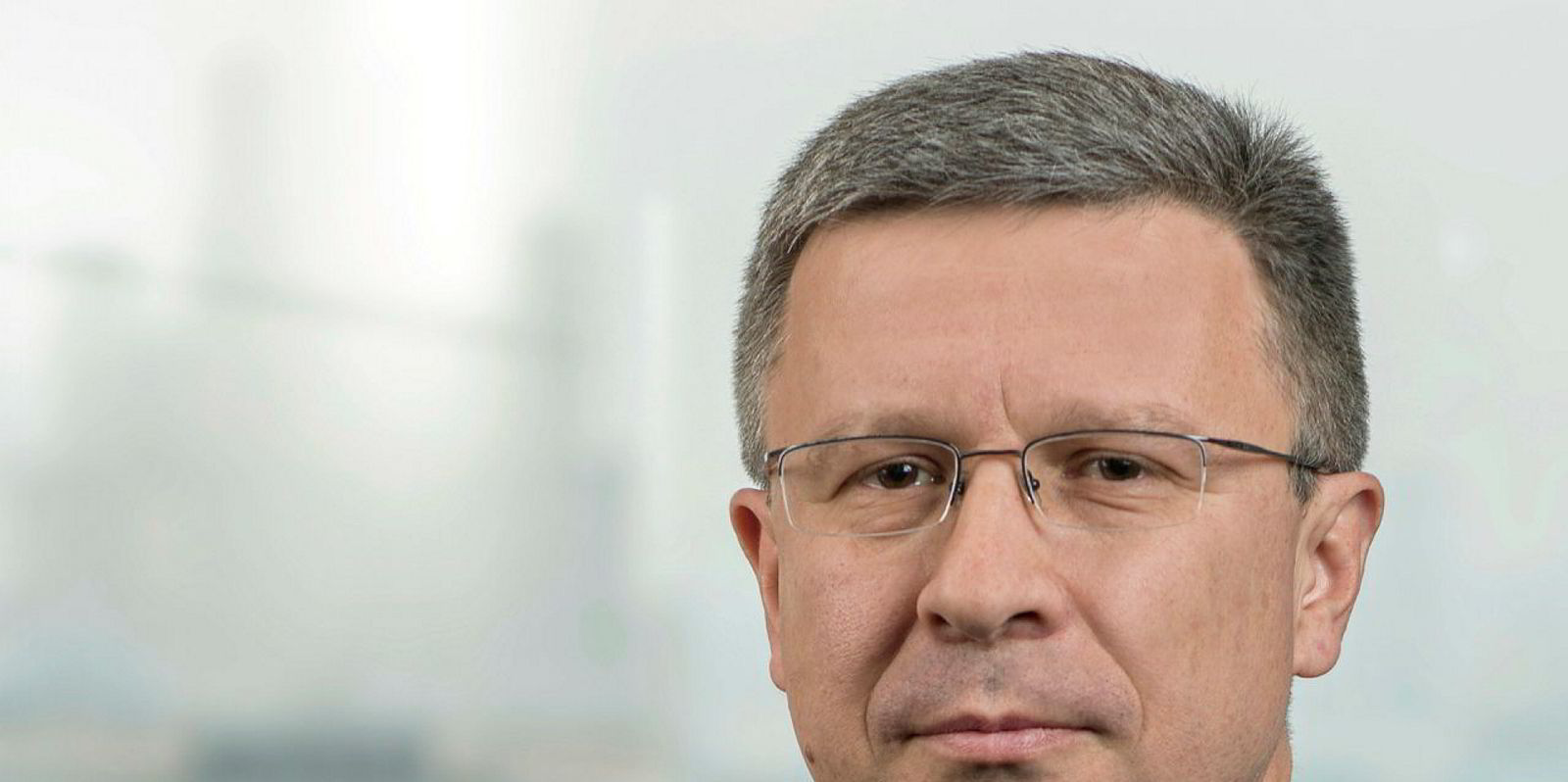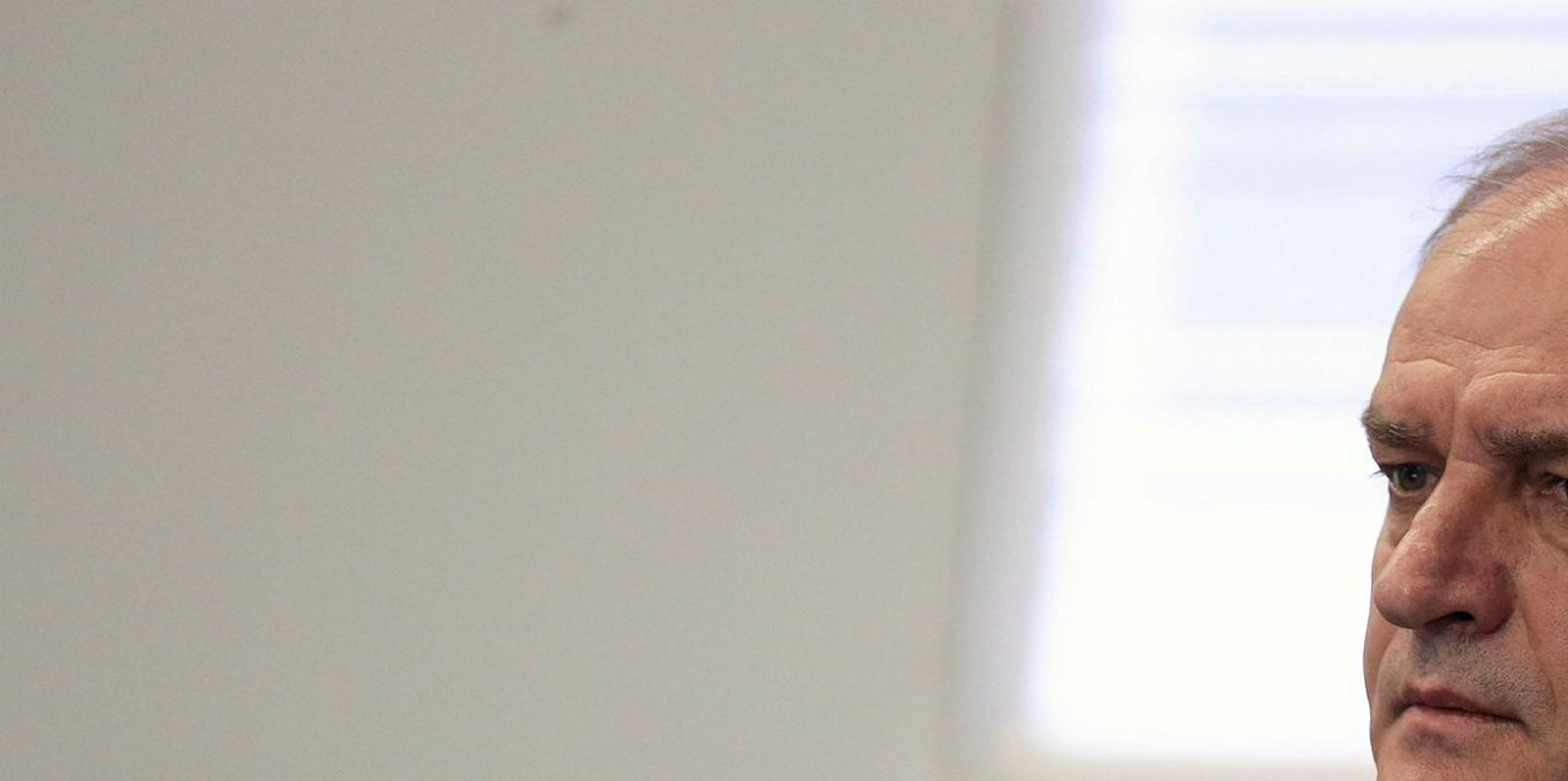Sovcomflot has revealed more of the plans to spend its initial public offering pot as it prepares for further growth.
Debt reduction is on the cards, as well as the tying up of some loose ends regarding its ownership of compatriot Novoship, which it took over in 2007.
Last month, the giant Russian shipowner raised RUB 38bn ($480m) from the share offering in Moscow.
Chief financial officer Nikolay Kolesnikov told TradeWinds that 100% of the cash will be available to the company.
"Now it's up to us to build the value of the business for all shareholders," he said.
Kolesnikov said Sovcomflot owns more than 90% of Novoship, with the remaining minority shareholders largely made up of former employees.
"We have plans to maybe fully integrate Novoship," he said. "So I think we'll get on with it now."
Stay in or cash out
"For those minority shareholders who want to stay in the business, we can offer them our own stock, or buy them out for cash."
Kolesnikov also said that, to "some extent", the capital will be used "for some partial deleveraging to strengthen the balance sheet".
The Russian state is retaining an 82.8% stake in the company, which is also looking at investments in new assets, with a focus on its long-term industrial projects such as Arctic LNG transport, and decarbonisation efforts.
Kolesnikov said the Russian federation consciously allowed its holding to be diluted so that the shipowner could raise money to grow the business.
"They came to the conclusion that they will stay as the majority shareholder for now," he said.
State to remain in control
Kolesnikov said Sovcomflot is trying to engage in higher-value and more complicated operations.
"We can differentiate ourselves with the quality of our service," he explained.
Sovcomflot logged net earnings of $23.1m in the third quarter, down from $25.9m in 2019, due to weaker tanker markets.
Revenue dipped to $347m compared with $376.5m a year ago.
The shipowner has 45% of the conventional tanker fleet employed under time charter contracts, allowing for "cyclicality resilience", the company told TradeWinds.
"We've been involved in this cyclical business for decades," Kolesnikov said, adding that managing this aspect is key.
"I don't think there's any magic formula. We try to diversify so we are not dependent on the market conditions in any one sector."
The same holds true for clients, with Sovcomflot not wanting to rely on any single account, Kolesnikov said.
Strike while the iron is hot
"We try to take advantage of the up cycles and lock more of our tankers into term business," he said.
Kolesnikov added that the company did this in the first and second quarters of 2020, when rates were high, and that these deals last well into 2021.
"Hopefully we will have sufficient contract cover from previous upturns in the market," he said. "The philosophy is that we do not want to have excessive spot market exposure. It's not our business model."
Mix of cover
Kolesnikov said the company will continue to have a mix of time charters, spot-trading vessels and bigger or smaller contracts of affreightment.
"That allows us to achieve transition of the vessels, to reposition the fleet, so yes, we will keep some exposure to the spot market and we will partially compensate for that by not having to wait for the next cargo or the next charter and spend money on repositioning the vessels from one geography to another," Kolesnikov said.
He also said that with good news on the Covid-19 vaccine front, markets can hopefully return to normal.






